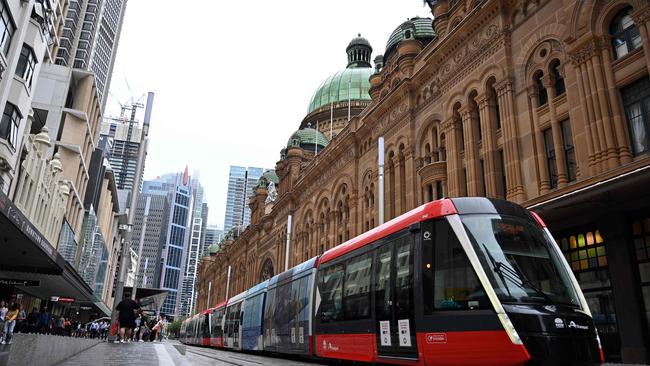Lenders bracing for surge in losses
Banks are bracing for a surge in lending losses as activity slows due to the coronavirus crisis

Banks are bracing for a surge in lending losses as activity slows due to the coronavirus crisis, with expectations the losses may even double in the coming months as businesses grapple with the fallout from the deadly outbreak that has shut down economies around the globe.
Senior business figures have warned that economic fallout from the disaster will last years.
“I think we need to be realistic. Things aren’t going to return to normal just because COVID-19 is behind us,” Coca Cola Amatil chief executive Alison Watkins said.
“We are going to live with the economic consequences for quite some time, I would suggest it will be years not months.”
ANZ chief executive Shayne Elliott said the pandemic meant the Australian economy would need to adapt into the new world.
“And we know that … new world will be with us for some period of time, not just a matter of weeks,” Mr Elliott said.
Bankers are bracing for a wave of corporate insolvencies that could hit in the coming months, particularly small to medium-sized businesses as cash flows drop off in the wake of the outbreak.
S&P warned that the impact of COVID-19 on the economy would see banks’ credit losses nearly double in 2020 — to about 30 basis points of gross loans and advances — up from historic lows in 2019.
Accounting firms and insolvency practitioners are now receiving an increase in calls from companies asking for advice on how to manage their business in the face of an expected sharp fall in revenue.
“There are a lot of very nervous business owners out there,” the chief executive of the Australian Restructuring Insolvency and Turnaround Association, John Winter, told The Australian.
“There are a lot of people who are deeply concerned at the loss of revenue,” he said.
“But most of them are not at a tipping point yet.”
He said rising concern in businesses about their future was “not converting into a raft of formal appointments (for administration or bankruptcy) just yet as people are just in the shock phase.
“But there is no doubt it’s coming. We are going to see a significant uptick in corporate insolvencies.”
He estimated the wave of insolvencies could come “within the next eight weeks when people’s cash reserves are going to run out”.
“There are a lot of small businesses who don’t have big reserves of cash who could run out of money and fall over.”
Mr Winter said he expected that companies in the airline, travel, tourism, hospitality, retail and events sectors would be among the hardest hit.
Some sectors of the economy, such as people running events and conferences “were going to be quite devastated”, Mr Winter warned.
“The education sector is being decimated. Food is doing quite well because of panic buying but the broader retail sector is going to struggle in this environment.”
He said there were also issues in the construction industry where companies were running out of building supplies due to shortages from China.
Mr Winter said he had been concerned for some time at the number of “zombie” companies in Australia that had loaded themselves up with debt because of the “availability of easy money”.
“There are a lot of businesses which have been propped up with debt. These are the businesses which will fall over very quickly.”
S&P said bank profitability in recent years would mean they could “absorb the increase in credit losses and disruption to funding markets due to the COVID-19 outbreak without posing any immediate or significant risks to (their) creditworthiness”.
Under a worse-case scenario, banks would struggle to access offshore wholesale funding and a sharp drop in economic activity would add to the triggers for a rapid rise in unemployment and a plunge in property prices.
PwC’s head of restructuring, Stephen Longley, said his firm had been getting an increasing number of calls from companies wanting advice on how to cope.
“There is a lot of speculation about what people need to do,” he said. “We are helping clients and trying to do a lot of scenarios and contingency planning about what level of revenue or sales might occur, what are the flow-on effects from cash and liquidity and how to manage in that environment. Everyone is in uncharted territory.
“A lot of people are flying blind about what the future means for them in terms of cash flow and liquidity.
“Events are changing very fast.”
Adam Nikitins, Oceania restructuring leader with EY, said his firm was getting a lot more questions from clients wanting advice on how to cope with the crisis.
“Coronavirus is both a supply side and a demand side disrupter,” he said. “We are getting all sorts of inquiries. It is not from companies at the end of their life cycle.
“Often it is a director who is concerned about the future prospects of their business. They want to take a proactive approach.
“We are talking with our clients across the board about scenario planning and contingency planning. They want to get as much in front of the situation as they can.”



To join the conversation, please log in. Don't have an account? Register
Join the conversation, you are commenting as Logout